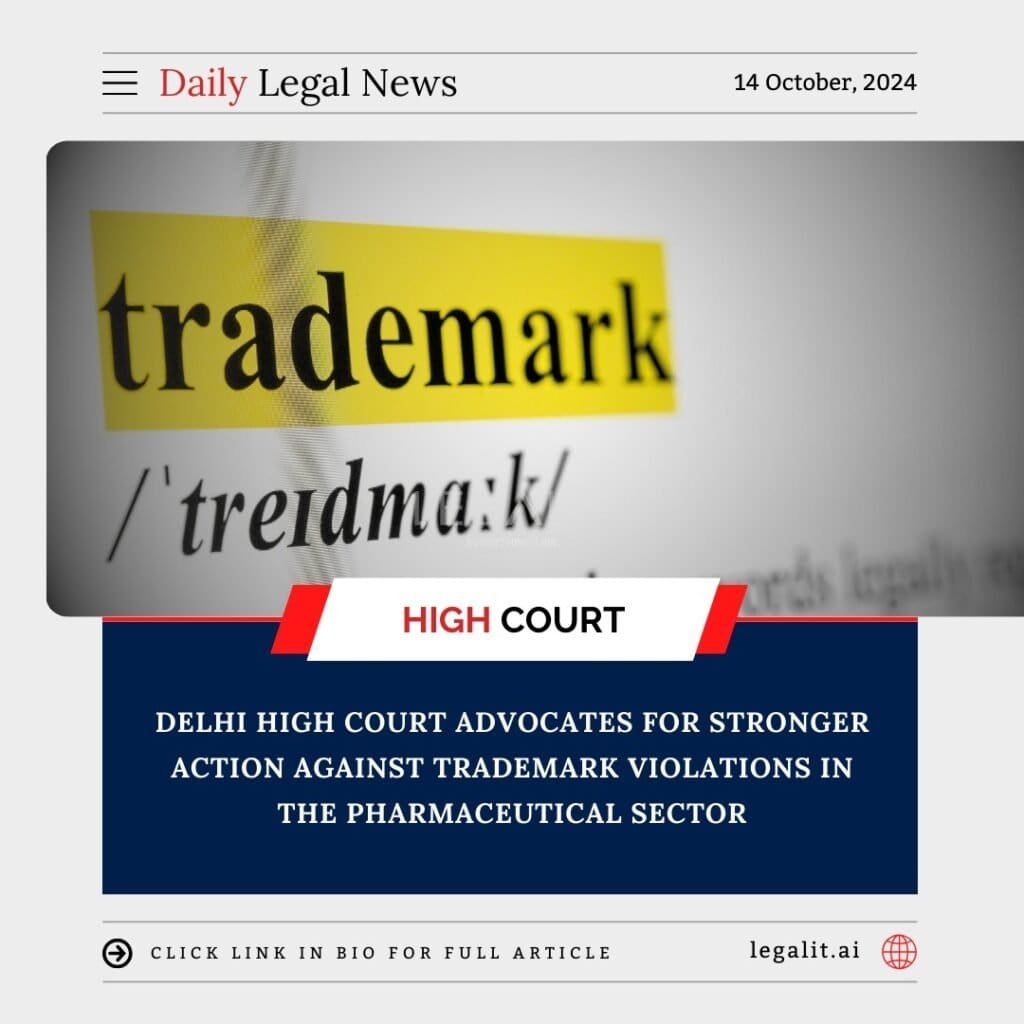
Background of the Case:
Trademark violations in the pharmaceutical industry have been a recurring issue due to the high stakes involved, particularly regarding public health and safety. The sector has seen multiple cases of companies producing counterfeit or similar-sounding medicines, which can confuse consumers and pose significant health risks. Recognizing the critical nature of maintaining brand distinction in this field, several pharmaceutical companies have taken legal recourse against competitors allegedly infringing on their trademarks.
The Delhi High Court, a key forum for intellectual property cases, has been particularly vocal in its stance against such violations in the pharma industry. Recently, the court has emphasized the need for stringent measures to safeguard the interests of both pharmaceutical companies and consumers from the dangers posed by counterfeit products and trademark infringements.
Court’s Ruling and Reasoning:
In the recent judgment, the Delhi High Court underscored the importance of maintaining strict standards when it comes to trademark violations in the pharmaceutical sector. The court ruled that even minor similarities between the names or packaging of pharmaceutical products could lead to confusion among consumers, which might result in serious health consequences. This makes the need for stricter scrutiny even more pressing.
The court noted that in cases where trademarks are closely imitated, the balance of convenience must favor the party whose mark has been infringed. It highlighted that the reputation and goodwill of pharmaceutical companies, as well as the safety of patients, should be of paramount concern. The court called for heightened vigilance and stricter actions to deter companies from engaging in deceptive practices.
Implications of the Judgment:
The Delhi High Court’s ruling serves as a strong reminder to pharmaceutical companies about the criticality of upholding trademark standards. This judgment is expected to set a precedent for future cases, urging companies to be more mindful of intellectual property rights. It also sends a message to potential violators that trademark infringement, especially in a sector as sensitive as pharmaceuticals, will not be tolerated lightly.
For the pharmaceutical industry, this ruling reinforces the idea that intellectual property, particularly trademarks, is a vital asset. The decision encourages companies to not only protect their own marks but also to respect the trademarks of others, ensuring a fair market for all players.
Need for Reforms in Trademark Regulation for Pharma Products:
While this judgment is a positive step, there is still a need for broader reforms in trademark regulations, particularly concerning pharmaceuticals. The complexity of the industry, where slight changes in product names can have serious consequences, calls for more comprehensive guidelines.
The regulatory framework should focus on improving enforcement mechanisms to swiftly address trademark disputes and prevent the marketing of counterfeit drugs. Enhanced collaboration between pharmaceutical companies and the regulatory authorities can ensure that trademark infringements are identified and dealt with before they reach the consumer.
Conclusion:
The Delhi High Court’s ruling to adopt a stricter stance on trademark violations in the pharmaceutical industry reflects the growing concern for consumer safety and the integrity of brands. As the pharmaceutical market continues to expand, maintaining clear distinctions between brands is essential to protect both the industry and consumers. This judgment not only bolsters the legal framework for intellectual property protection but also highlights the need for further reforms to address the unique challenges posed by the pharmaceutical sector.